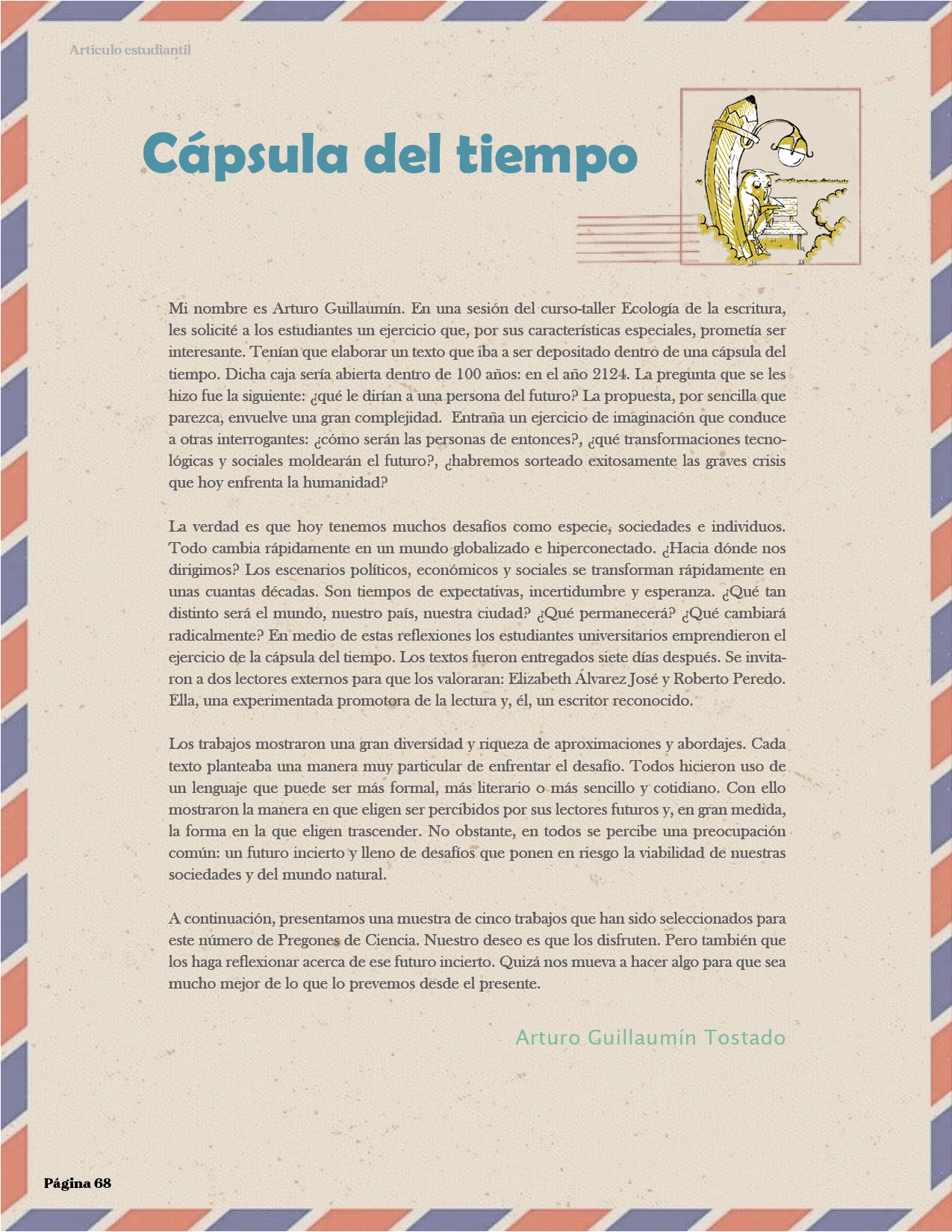Abstract
My name is Arturo Guillaumín. During a session of the ‘Ecology of Writing’ workshop course, I asked the students to undertake an exercise that, due to its special characteristics, promised to be interesting. They had to create a text that would be placed inside a time capsule. This box would be opened in 100 years: in the year 2124. The question posed to them was the following: What would you tell a person from the future? The proposal, as simple as it may seem, involves great complexity. It entails an exercise of imagination that leads to other questions: What will people be like then? What technological and social transformations will shape the future? Will we have successfully overcome the serious crises that humanity faces today?
The truth is that today we have many challenges as a species, societies, and individuals. Everything changes rapidly in a globalized and hyper-connected world. Where are we heading? Political, economic, and social scenarios transform rapidly in just a few decades. These are times of expectations, uncertainty, and hope. How different will the world, our country, our city be? What will remain? What will change radically? Amid these reflections, the university students undertook the time capsule exercise. The texts were delivered seven days later. Two external readers were invited to evaluate them: Elizabeth Álvarez José and Roberto Peredo. She, an experienced reading promoter, and he, a recognized writer.
The works showed a great diversity and richness of approaches and perspectives. Each text proposed a very particular way of facing the challenge. All made use of a language that could be more formal, more literary, or simpler and everyday. With this, they showed the way they choose to be perceived by their future readers and, to a large extent, the way they choose to transcend. However, in all of them, a common concern is perceived: an uncertain future full of challenges that put at risk the viability of our societies and the natural world.
Next, we present a sample of five works that have been selected for this issue of Pregones de Ciencia. Our wish is that you enjoy them. But also that they make you reflect on that uncertain future. Perhaps it will move us to do something so that it is much better than we foresee from the present.

This work is licensed under a Creative Commons Attribution 4.0 International License.
Copyright (c) 2024 Pregones de Ciencia

